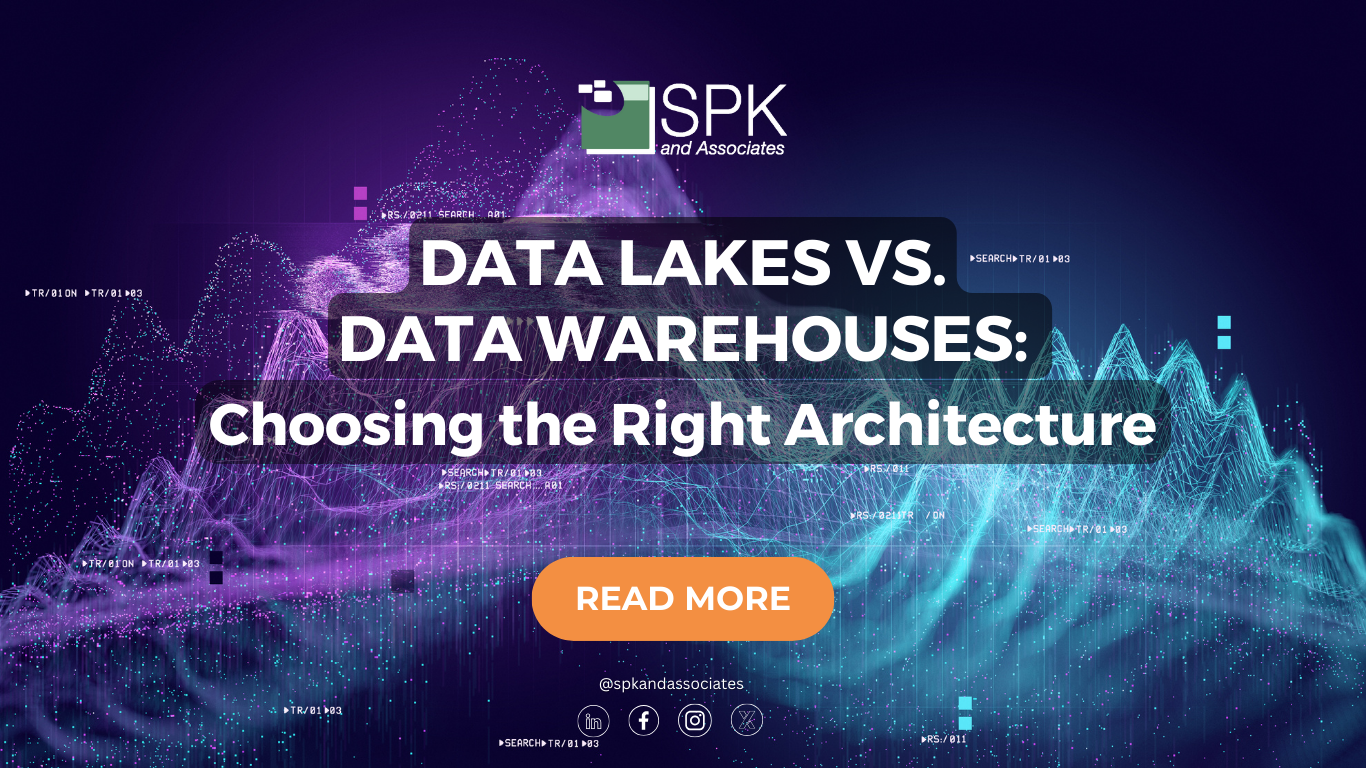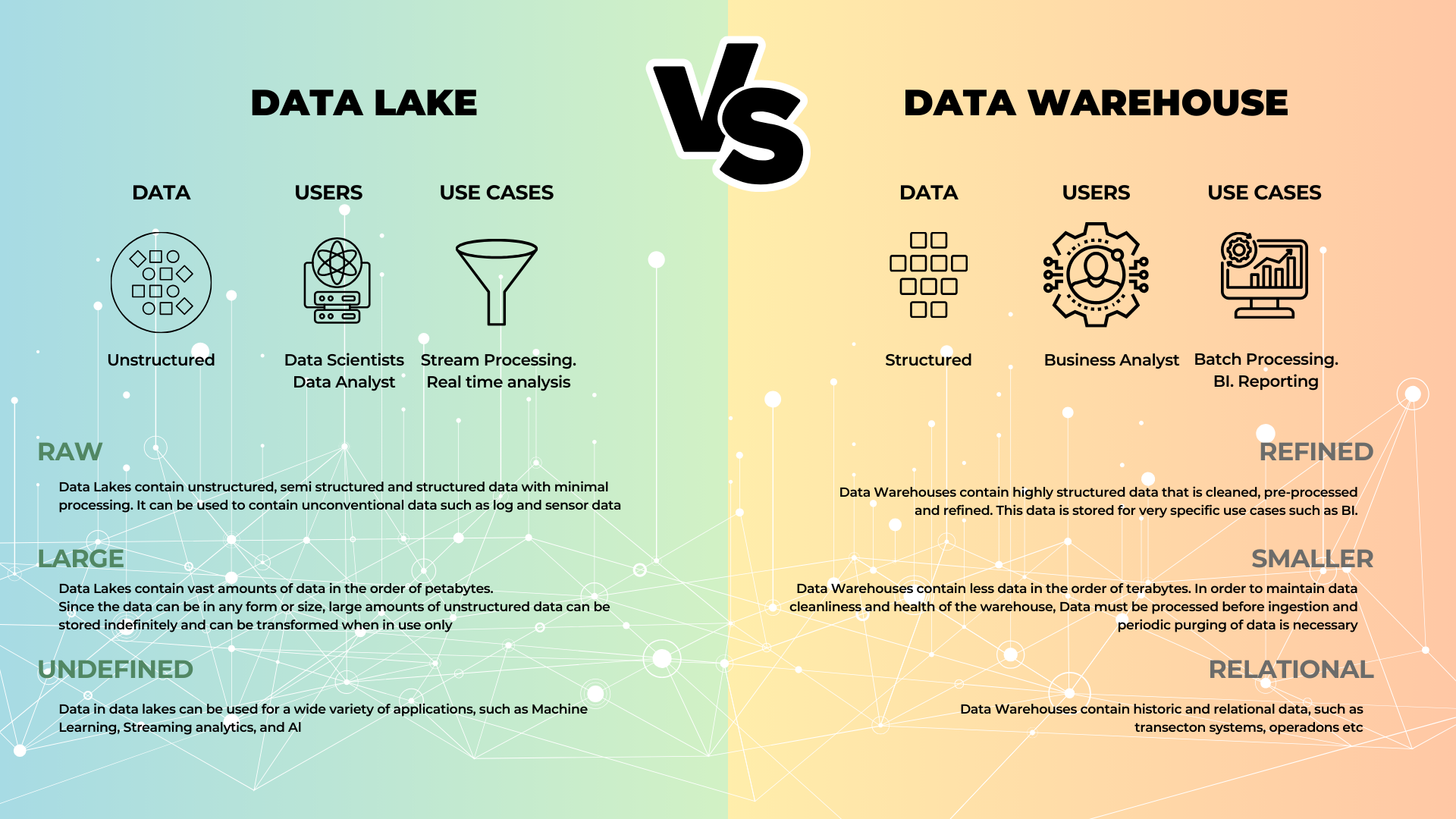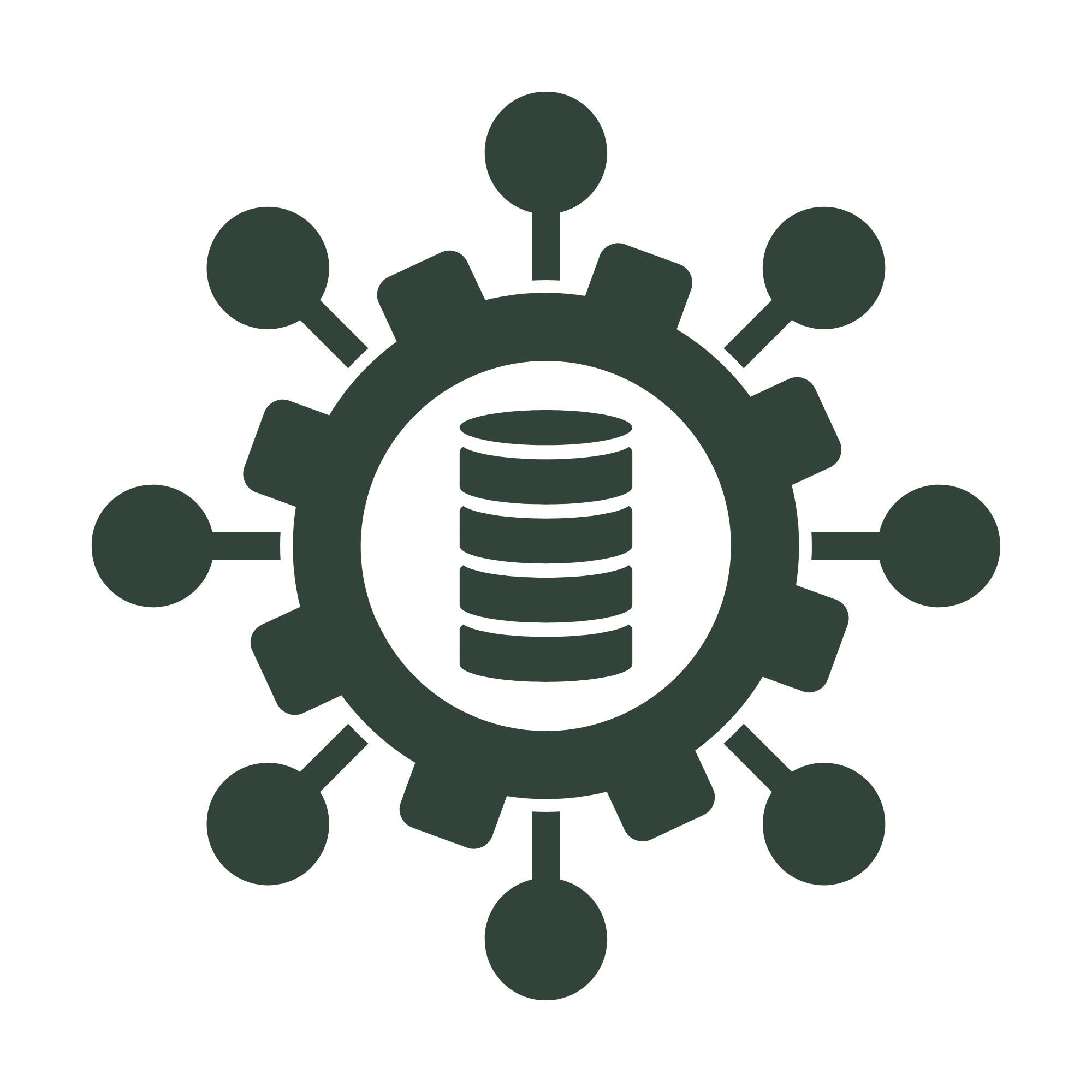If your organization accumulates any sort of data, you likely understand the importance of Enterprise Data Management (EDM). In this blog, we will help you find the data management solution that best suits your organization’s needs. We will compare the benefits and drawbacks of data lakes and data warehouses, helping you choose the solution that will enable employee success.
Data Lakes
Firstly, what is a data lake? A data lake is a centralized storage area for all kinds of data ranging from structured to unstructured. This means that in addition to processed data, raw data can also be stored there, eliminating the need for data silos. Data lakes can do this because they are designed to handle large volumes of data. They are also vertically and horizontally scalable if more storage or processing resources are needed.
Data Warehouses
In comparison, data warehouses are similar as they are also a centralized data management system. This however is where the similarities end. Unlike data lakes, the goal of data warehouses is to provide business intelligence from the structured data they store. This data is often organized into tables by dimensional model techniques. Furthermore, data warehouses facilitate efficient querying, reporting, and data analysis for users. They frequently implement ETL processes as well, ensuring data quality.
Benefits
Data Lakes
Data lakes are more flexible and cost-effective than other data management solutions. This is because they allow users to bypass the Extract Transform Load (ETL) process, meaning large amounts of data can be imported in a timely manner. They can also safely store unprocessed data. In addition to this, the structure of data lakes enables users to perform ad-hoc queries, helping them find and analyze data. Users can also meet compliance needs by maintaining data quality and security within their data lakes. Lastly, data lakes integrate with many data processing tools such as SQL query engines and Hadoop-based frameworks like Apache Spark.
Data Warehouses
Whereas data lakes store unprocessed data, data warehouses store historical data. This continuous history enables organizations to analyze their insights and track performance over time. Data warehouses also provide tools for querying and analyzing data such as SQL-based query engines and reporting tools. Data querying allows users to filter, select, update, insert, and delete data, keeping the warehouse organized. In addition to this, data warehouses are vertically scalable by adding computing resources or horizontally scalable by employing data distribution across multiple nodes. Users can also implement security measures such as encryption, access controls, and auditing to protect data and comply with regulatory standards. Data warehouses are overall a great platform for storing large amounts of data and maintaining consistent data quality.
Drawbacks
Data Lakes
Due to their large storage capacity, data lakes can become known as a “data swamp.” This is when users do not properly organize or manage their data, resulting in poor-quality data. This can be prevented with data validation. In addition to quality issues, users must be cautious of how they choose to organize their data. If there is no system in place, they may accidentally duplicate data or be unable to find certain data assets. Users can resolve this issue by integrating their data lakes with software tools for data indexing or visualization. Unfortunately, these tools are not built in and must be integrated. Lastly, like all data storage methods, data lakes can be prone to security risks. Users must be sure to encrypt their data and prevent breaches.
Data Warehouses
The most blatant drawback of data warehouses is they do not support raw data storage. Data must fit into a predefined schema before entering a data warehouse. This is typically done through the ETL process. However, this results in data being organized. With these extra steps come extra costs. The initial cost of the hardware and data integration tools can be costly. In addition to this, scaling the warehouse can also be expensive. Data warehouses have a wide range of abilities, but due to this users may experience performance bottlenecks. This slow responsiveness is often seen during peak use periods. Lastly, just like data lakes, users must keep an eye on security to ensure data breaches do not occur and leak any sensitive data.
Which Data Management Solution Should You Use?
Now that we have covered the pros and cons of data lakes and warehouses, let’s decide which one is best for your organization. I’d like to first note that you technically do not have to choose, as they can be deployed together. However, this can be expensive and time-consuming.
Typically, data lakes work well for organizations that need a flexible solution. They may have a lot of data and do not have the time to process it all before putting it into their system. Data lakes are also good for organizations that don’t mind integrating other tools to help organize their data. Lastly, data lakes can be more cost-efficient, making it the obvious choice for many organizations.
On the other hand, data warehouses are often used for organizations that need structured data analysis and historical reporting. Data must be properly organized before entering the system, ensuring data consistency. Data warehouses are great for organizations that need their employees to have a strong system in place to ensure successful collaboration. Although they can be costly, these warehouses do not typically need other tools to ensure organized data. Organizations that value structure overall will most likely prefer data warehouses.
Still Need Guidance?
If you still want to learn more about these two data management solutions, you can speak with one of our experts. SPK can analyze your data and provide your business with guidance, ensuring you make the right choice for your organization. If you want to learn more, contact an expert here.










